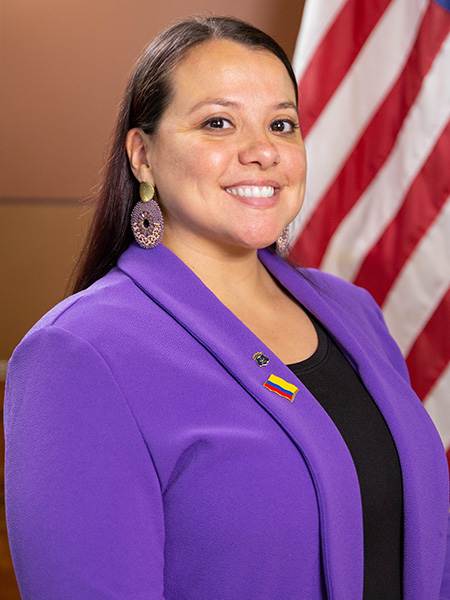Bill to end payday lending signed into law
STATE HOUSE — Legislation sponsored by Rep. Karen Alzate and Sen. Ana B. Quezada that will repeal the exception that allows payday lending to operate in Rhode Island has been signed into law.

Rep. Karen Alzate
“As Rhode Islanders struggle to make ends meet in an increasingly uncertain economy, one threat continues to fly under the radar while quietly wreaking havoc on our communities – payday lending. These predatory loan shops lure in the most vulnerable among us with what looks like a lifeline, but is in truth a trap. It’s time for our state to close this loophole once and for all,” said Representative Alzate (D-Dist. 60, Pawtucket, Central Falls).
“It’s taken a long time to end this predatory business model that exploits and victimizes our state’s most financially vulnerable residents. Under the guise of helping people with short-term financial relief, payday lending instead catches desperate individuals in almost inescapable cycles of ever-increasing debt. I’m grateful that this disgraceful practice will no longer be tolerated in Rhode Island,” said Senator Quezada (D-Dist. 2, Providence).
The legislation (2025-H 5042A, 2025-S 0229A) eliminates the special carve-out in Rhode Island law that allows payday lenders to charge effective interest rates of 260% APR that trap people in cycles of debt. The new law goes into effective Jan. 1, 2027.
Rhode Island law already caps the maximum interest of small loans at 36% annual percentage rate for loans of $300 or less, with lower rates for larger loans. There are loopholes in this law used by payday lenders in Rhode Island to charge far higher rates. The most common method is when storefront payday lenders register as deferred deposit providers, or “check cashers” under the exemption in Rhode Island law that this bill will eliminate, allowing them to charge an affective APR of 260% on small loans.

Sen. Ana B. Quezada
Ending predatory payday lending practices has broad majority support across the political spectrum in Rhode Island. A 2022 poll conducted by the Center for Responsible Lending showed that Rhode Islanders from all political parties supported a 36% rate cap on all loans by a 49-point margin. Better short-term loan options already exist for Rhode Islanders from local credit unions, banks and community financial groups all offering small loans, with low fees and interest rates ranging from 5% to 30%
